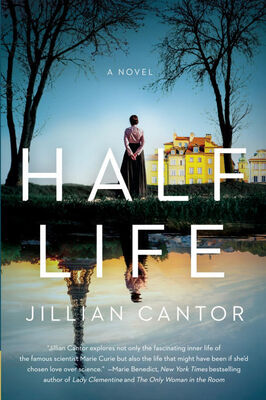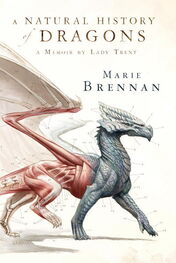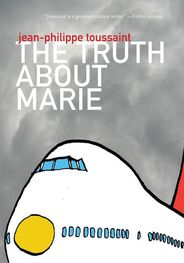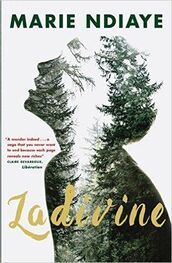“I will pay for your ticket,” Hela said. “You have no reason not to go.”
“Oh, you two.” Bronia rolled her eyes. “Can we stop talking about science for five minutes and go enjoy this beautiful view, hmmm?”
“You should talk, Bron,” Hela retorted. “You are always working.”
“I have taken this entire month off,” Bronia retorted back, sounding uncertain, like she could barely believe her own words. “Lou and I both have.”
“I’ll stop talking about science, if Marya will agree to come to Brussels with me,” Hela said. Both her eyes and Bronia’s fell squarely on my face, staring at me, waiting for me.
“Yes,” I finally said, feeling both excited and terrified. “I’ll go to Brussels with you.”
THEN I SAT OUT ON THE BEACH IN BETWEEN MY SISTER-MOTHER and my sister-twin, and all of us, with our wrinkled faces and graying buns now, we forgot about science for a little while. We watched our grown children swimming, racing each other in the water, laughing and teasing one another, cousins and comrades. Lou was the fastest one, with Jakub coming in second. ( Of course Bronia’s children were the best and fastest, just like their mother.) Marie beat Klara—my beautiful, musically inclined child always came in last, the least athletic of all her cousins.
Out on the beach, Hela reached for my hand, and I reached for Bronia’s hand, and we all sat there like that together, three old women, forever connected to one another by blood and by love. And yes, by science, too.
“Look at all we have become, all we have done,” Hela said, a smile in her voice as we stared out at our children and onto the great expanse of water. I’d grown used to its size, so I no longer feared it. I still didn’t like to go in, but I enjoyed taking in its enormous beauty. Bronia squeezed my hand in response, and I squeezed back.
My sister-twin had won science’s biggest prize, and she and Jacques had patented their discovery, making them flush now with royalties and allowing them to construct a three-story lab of their own in Paris where they were continuing with their work. Marie was finishing up her degree in chemistry to work alongside them.
My sister-mother and her Kazimierz had run a successful sanatorium in Zakopane for years and were making plans to move back to Warsaw and open their own hospital there, where Lou planned to work too. Jakub was studying medicine at Jagiellonian, and one day no doubt, there would be an entire hospital staffed with a full line of Dluski doctors.
And me? I had raised my beautiful and talented daughter, given her life and music and opportunity. And I had taken Professor Mazur’s research and turned it into something of my own, a theory, a paper. A small thing that maybe would become a big thing. After I went to Solvay with Hela, if I managed to get my paper published, perhaps one day when I was no longer here on this beach to watch my Klara swim, or listen to her give a concert, a little piece of me, a little piece of my idea, would still be left behind in this great big world.
PIERRE HAD STAYED IN PARIS ALL SUMMER, WORKING WITH Jacques, finally, on his pitchblende. Hela said the real reason he stayed behind was for Jeanne, who refused to be in a room with Hela any longer (much less spend the summer in the same house) since Hela had hired Paul to work with her and Jacques last year. He’s a highly qualified scientist , Hela had said to me with a shrug.
I felt annoyed with her on Jeanne’s behalf. Oh, Hela , I said, was there no one else? But anyway, I didn’t believe what Hela said to be true. Pierre had wanted to test his theory on the pitchblende for so many years. That meant more to him than any woman, any love. That’s why he stayed in Paris.
But then Pierre showed up in L’Arcouëst late one afternoon in August, just a few days before we were all set to go home. His beard was a shocking snowy white, and his hairline had receded enough so it almost disappeared, leaving him nearly completely bald. But when I caught his eyes, they were still as deep and blue as the water surrounding Stockholm.
“Is everything all right with the lab?” Hela asked, alarmed to see him. She and Jacques were working on using their electromagnetic research for medical imaging, and her new lab was now her most important child.
“Yes, quite,” Pierre said. “I just needed a few days out of the city. Jacques is still working, not to worry.”
“Hmmm.” Bronia folded her hands in front of her chest and stared at Pierre with the same look of disdain she’d given him once so many years earlier when we’d returned to her house in La Villete after watching the bicycle race. I smiled a little at the memory.
“If you must know,” Pierre said, looking at the three of us a little like all together we were a force that frightened him. “Jeanne and Paul have decided to reconcile.”
“Oh, Pierre,” Hela said, offering him a quick hug. “I’m so sorry.” Pierre shrugged, but he kept his eyes on me. I offered him a small smile, a shrug of my own in return, surprised that maybe Hela had been right about why he’d stayed in Paris this summer all along. Love, not science.
“There’s vodka in the icebox,” Bronia said, walking toward the kitchen. “Pierre, you look like you could use it.”
LATER, AFTER EVERYONE HAD GONE TO BED, PIERRE AND I SAT out on the back deck, still nursing our vodkas. A lamp sat on the table between us, and in the flicker of the flame, I could sometimes see the waves in the distance as I heard them crashing against the rocks.
“I don’t know that I ever really truly loved her,” Pierre said softly.
“You must’ve. To have stayed with her for years,” I said.
“Hmmm,” Pierre said. “But maybe there is a difference between a great love and companionship, mon amie .”
I thought about Kaz, all our many years together, and I didn’t know if I agreed with Pierre. What was a great love if it did not fill in the spaces of loneliness over so much time? If all a person needed to survive was her studies, her work, her lab, then I would’ve stepped on that train to Paris so many years ago and left Kaz at the station. But that was not all there was. What was the point of work at all, if you had no one to share it with? “How is your pitchblende?” I asked him, changing the subject.
He smiled wanly. “Jacques and I may have finally isolated what I’ve been looking for all along. An entirely different element than becquerelium, with different chemical properties.”
“Pierre! That’s wonderful!”
He nodded, took a large sip of his vodka. “Yes, I suppose I should feel happy. But… what does it matter now? Who else will care but me? And, I’m old and barely a real scientist.”
“For one thing, you are very much a real scientist. And for another, you’re not that old,” I said to him.
He sighed and swished the vodka around in his glass. “Anyway, my legs are quite tired,” he said. “It is hard to get out of bed in the mornings, much less undertake the strenuous work of scientific study. I think I’ll retire to Sceaux and spend my remaining days in the gardens of my childhood.”
“Nonsense. You’re in good health. You must continue your work,” I insisted. I thought about how much Hela’s support of my paper meant to me, and I wanted to give the same to Pierre. “I’ll make you a deal,” I said. “Hela wants me to come present my research in Brussels at Solvay this fall. I’ll go present my research if you also come present yours.”
He laughed, like he thought I was joking, and then his face turned when he noticed my serious expression.
“Well, why not?” I said. “What if generations of future scientists can use these things we discovered? What if our small discoveries make the entirety of our lives and all our choices matter?”
Читать дальше






